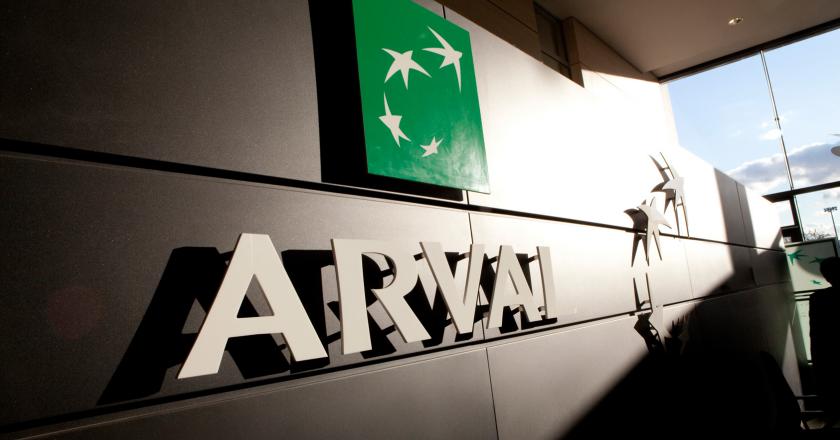reprieve, after fears it could be forced to file for bankruptcy.
The US Federal Reserve has injected $6bn (£4.3bn) of capital into
GMAC, after the motor finance provider won its bid to become a bank
holding company at the end of December.
scope of solvency regulation by the Fed system. Crucially, it
brought access to the Troubled Assets Relief Program (TARP),
established in October after the Lehman Brothers collapse, for
medium-term government funding of distressed US banks.
GM, meanwhile, will also be free to offer finance from other
third-party providers, as an exclusivity deal signed by the
manufacturer and its former captive in 2006 – which was due to run
until 2016 – has been suspended. GM’s North American head of sales,
Mark LaNeve said that the manufacturer is “looking to re-enter the
leasing business on at least a limited basis at some point in
2009”, with up to 5 per cent of sales financed this way. However,
the very low lease rates seen in recent years would not be making a
return, he added.
GMAC has shut down its North American units Nuvell and National,
reported AutoFinanceNews.net, with the loss of over 200 jobs.
Nuvell was GMAC’s non-prime and private-label business unit, while
National wrote finance for non-GM vehicles for both prime and
non-prime customers. “With the current macroeconomic situation, we
are focusing on our core business, which is prime auto lending,”
said a GMAC spokesman.
Not a captive
GMAC has not been a true captive since 2006, when the private
equity group Cerberus Capital Management took a 51 per cent
majority stake, leaving GM with 49 per cent. The dilution of GM’s
equity continues, following ill-fated diversification into
sub-prime residential mortgages, where GMAC’s ResCap arm has booked
$8.9bn (£6.4bn) of losses over the past two years. As part of the
conditions of GMAC’s conversion to a bank holding company, GM will
reduce its voting and total equity interest to under 10 per cent,
while Cerberus’ stake will be reduced to no more than 33 per cent
of total equity.
The Fed’s liquidity injection mainly comprises $5bn (£3.6bn) of
preference shares with an 8 per cent dividend rate. As part of the
deal, GMAC also has to find more regulatory capital from other
sources, including $2bn (£1.4bn) of new equity.
While GM and Cerberus are both putting in more capital, most
looks set to come from debt-to-equity swaps negotiated with
existing private sector bondholders. This will dilute GM’s equity
further, and take the Cerberus stake below 50 per cent.
Following the Federal recapitalisation agreement, GMAC announced
an expansion of its US car loan offers to consumers with lower
credit reference ratings. It has relaunched zero interest offers on
selected GM models, and expanded dealer funding.
How well do you really know your competitors?
Access the most comprehensive Company Profiles on the market, powered by GlobalData. Save hours of research. Gain competitive edge.

Thank you!
Your download email will arrive shortly
Not ready to buy yet? Download a free sample
We are confident about the unique quality of our Company Profiles. However, we want you to make the most beneficial decision for your business, so we offer a free sample that you can download by submitting the below form
By GlobalDataThe impact on GMAC’s UK subsidiary has yet to be calculated,
however. Managing director for sales and marketing of GMAC UK,
Dennis Foley said: “The recent actions by the US government are
expected to immediately impact GMAC’s US business and those actions
clearly strengthen the overall company. Naturally, we are very
encouraged to have the bank holding company application approved
and receive an investment from the US Treasury. However, what the
effect on the day-to-day operations in the UK will be is too early
to tell at this stage.”
A model for the UK?
Lord Mandelson, Secretary of State for Business, Enterprise and
Regulatory Reform, has strongly implied that state aid for captives
in the UK could well be agreed – and sooner rather than later. In a
BBC interview, he said: “There is an issue to do with [the car
industry’s] ability to raise finance to fund new car purchases and
that links back to the credit crunch, it links back to their access
to liquidity, to drive their financing arms and that’s something
that I’m in close contact with car companies about, the Treasury is
too.
“It may well be that we’ve got to see how the motor finance arms
can be assisted, in terms of their additional liquidity needs, and
that we’re going to be looking at in the coming weeks.”
Responding to Lord Mandelson’s comments, Stephen Sklaroff,
director-general of the Finance & Leasing Association said: “We
are in active discussion with the government to ensure that motor
finance companies, along with other non-bank lenders, have access
to the relevant government liquidity and guarantee schemes, so that
they can get the funds they need to serve their customers in the
motor and other markets.”
The GMAC rescue plan in the US could provide a model for the UK
government to follow when providing funds for motor finance
providers. But before arrangements can be made, the government will
have to be reassured that any liquidity provided to a captive is
not sent to the ultimate parent in another country.
One industry observer commented: “I think it’s possible that
some multinational players like GMAC and Ford Credit could have to
restructure themselves to some degree so as take advantage of a UK
car finance support plan. They will probably need separate UK
subsidiaries with banking licences, which not all of them already
have.”
Chrysler Financial gets $1.5bn loan
The US Treasury Department has announced that it has made a
$1.5bn (£1.1bn) loan to Chrysler Financial, under the terms of the
TARP programme. The Treasury said the loan’s purpose is “to finance
the extension of new consumer auto loans as part of a broader
programme to assist the domestic automotive industry in becoming
financially viable”.
Chrysler Financial has not had to transform itself into a bank
holding company in order to access the funds, unlike GMAC. The
company has responded to the Treasury’s loan decision by
immediately offering customers new finance incentives, in an effort
to boost sales at its Cerberus-owned parent Chrysler, which saw
sales fall by 53 per cent year on year in December.
The loan, paid to a special purpose entity called Chrysler
Holding, has a five-year term and will pay interest at a rate of
one month LIBOR plus 100 basis points for the first year, and one
month LIBOR plus 150 basis points for the remainder of the
term.
In a separate development, Italian carmaker Fiat has taken a 35
per cent stake in Chrysler in return for access to Fiat’s
fuel-efficient technologies and components, as the two
manufacturers form a global strategic alliance which they both hope
will enlarge their distribution networks, and sales
opportunities.







